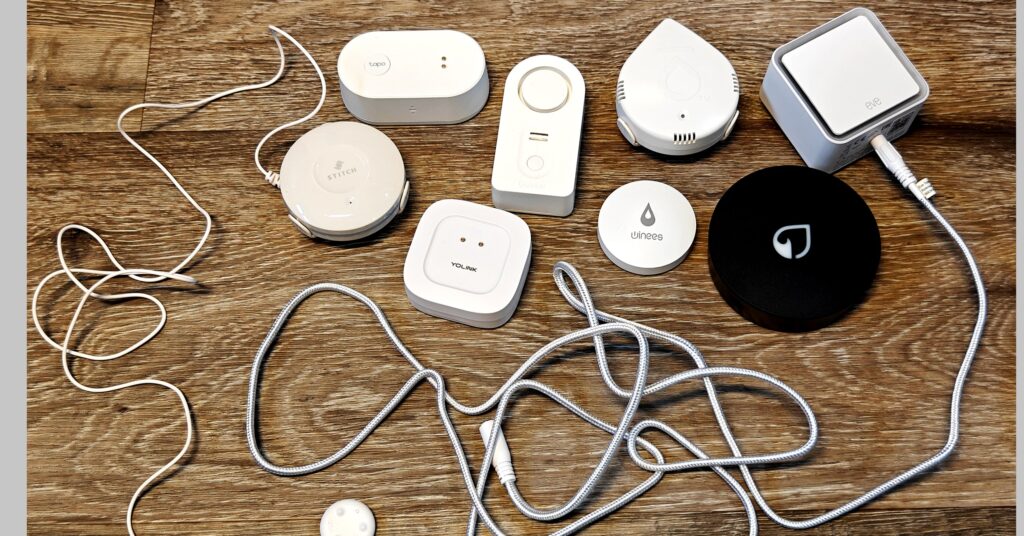Here's what you need to consider when purchasing and installing a smart water leak detector in your home.
How do water leak detectors work?
Water leak detectors can detect water buildup, and some can also detect water droplets or increased humidity. Premium water leak detector monitors water flow within pipes. All connect to a hub or directly to your Wi-Fi network and send alerts when it detects issues.
What types of water leak detectors are there?
Water leak detectors may have a cable with a sensor on the end, a water-sensing cord, or they may be self-contained with a sensor on the top, bottom, or both. There is an option for an extended node with several detectors. At the top end of the market, you can get water leak detectors that must be installed on pipes to measure water flow and automatically shut off when a leak is detected.
How many water leak detectors do I need?
Unless there is only one problem area or piece of equipment you want to monitor, you will likely need multiple leak detectors. When considering what type of detector is best and how many you need, think about the area you want to cover.
Where should I install a water leak detector?
Under sinks, behind toilets, next to washing machines, humidifiers, water heaters, other water tanks, and anywhere there is a risk of water leaks. Problem areas where water leaks have occurred in the past, or if you are concerned about aging appliances, are good places to install a water leak detector.
How does a water leak detector alert you?
All smart water leak detectors we tested send push notifications when a leak occurs, but some also send an email or text. Most products have some kind of built-in alarm sound, but some offer a separate siren or can be configured to send alerts through smart speakers or other devices. It's worth checking if your chosen product supports disconnection alerts that alert you when you lose connectivity, which can occur if your power or Wi-Fi goes out.
How is the water leak detector powered?
Most detectors are battery operated, but some are plugged directly into an electrical outlet. Plug-in detectors can be set and forgotten, but batteries allow for more flexibility in deployment, and a companion app will usually alert you when the battery needs replacing.
Does the water leak detector require a Wi-Fi connection?
Most smart water leak detectors connect directly to your Wi-Fi router or hub, so make sure your location has a good signal. Most of the devices we tested only connect to Wi-Fi in the 2.4 GHz band. Please note that internet access is required to alert you to leaks and problems while you are away. They simply act as a local alarm if the internet goes down.
Can I integrate a water leak detector into my smart home?
Companion apps and mobile notifications are common, but some detectors support smart home standards so you can access the detector and set triggers and automations with your smart home app of choice. For example, you can set water alerts to make smart lights flash, or choose the temperature at which your heating or air conditioning turns on.
Can I shut off the water with a water leak alarm?
Some high-end systems allow you to install water monitoring devices with automatic shutoffs, which can shut off the water supply if a leak is detected. However, these systems are typically expensive and may require professional installation.
Can a water leak detector also monitor temperature and humidity?
Some smart water leak detectors can also monitor temperature and humidity, and can alert you to the dangers of frozen pipes or damp environments that could indicate a nearby water leak. There is a gender. Temperature and humidity are usually visible over time, so you can quickly spot any noticeable changes that need investigation. Smart home automation also allows you to run your heating or fan at a specific level to reduce the risk of damage.

